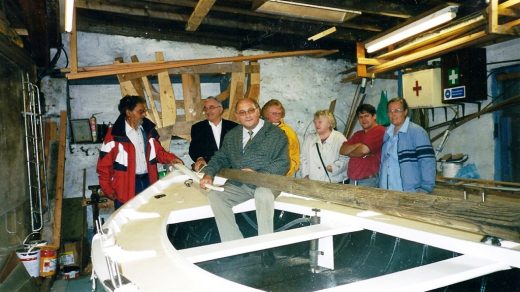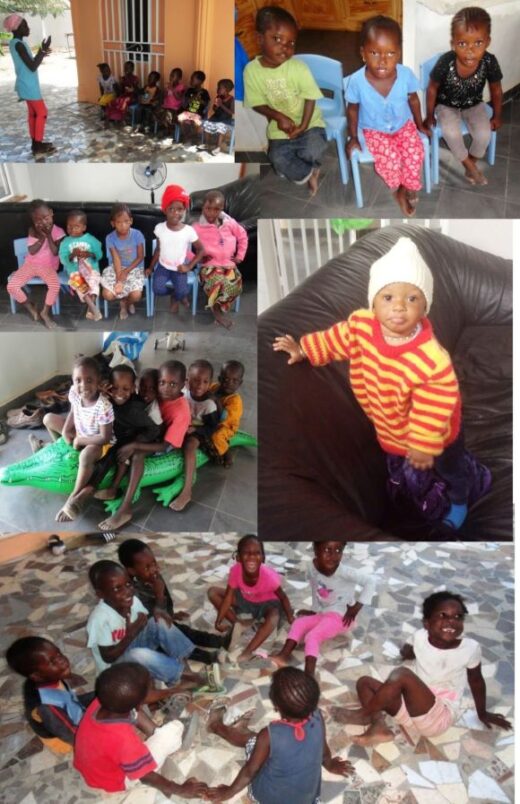
(The boat featured in the photo is one of the “ripples” as it was built in a neigbouring village by youth under the guidance of another man who had a dream to build an historical boat as a means to impart boat building skills to youth.)
Change is not a new phenomenon as every generation must go through its own periods of transition both economically and socially. The only difference is in the reaction and how far the symptoms go unrecognized or are ignored before the real issues are addressed. If we compare economic overviews from both the Atlantic Region and the Northeast of Scotland changes affecting us could be traced back to the late 1960’s. The response was the only thing that was different as in the Atlantic Region government intervened while in Scotland’s Northeast the oil Industry happened. The more interesting aspect is that in both cases the interventions are now in decline – government has less resources in Canada and the oil industry is rationalizing.
Yet in both cases I would argue that it was only the symptoms that were dealt with not the real issue. In both cases outside interventions delayed local people having to come to terms with the changes that were and are impacting our whole society. These changes are driven by technological advancement and are interfering seriously with the traditional method of wealth transfer through employment or jobs. The symptom is that jobs are in decline so the solution must be to create jobs no matter the outfall – economically or socially. Has this not been the raison d’être of government support since the seventies and the criteria for its evaluation?
Real development must be rooted in the culture and history of people to be effective. And therein lies the dilemma – we know so little about the people who live in our communities and villages and less about the complexities of their pasts. Yet, we continue to develop programs, create incentives and encourage another generation to develop ideas that can be supported by funding without concern for the implications if it doesn’t fit either the person or the environment.
The reason for telling the following story is by way of amplifying by example that development results from inspiration. Yet inspiration without support is only expectation. The very thing that officials struggle with all the time – the dilemma of raising expectations and the inherent anguish of trying to fulfil these expectations of others. They need to understand that this is the impossible task they set themselves. They need to become aware that you can facilitate dreams and assist the visions that are evidenced in communities and villages wherever I travel.
Such inspiration was evident in Portsoy, an historic and beautiful coastal community along Scotland’s Moray Firth. It happened when a lifelong dream, inspired by local action met up with an awakened vision. It culminated with the launching of a wooden boat replica of “A Scaffie” named Obair na Ghoal translated from Gaelic to mean labour of love. But the dreams have spawned dreams and wider visions as is often the case when inspiration transcends inertia.
Alex Slater has a lifelong relationship with boats and the sea and the advent of the celebration of Portsoy’s three hundred year old harbour in 1994 inspired him to venture forth his dream. Haltingly at first, as we are apt to do when we dare to look within ourselves. He offered, as example of the historic skills and latent talents that had been passed onto him, a mast for a “Scaffie” the traditional working boat of the Moray Firth fishermen.
Simultaneously, Sinclair Young was motivated, by this event, to develop a vision for a development to enhance the opportunities for youth and create a new economy founded on tradition and culture. This vision encapsulated a scheme of activity holidays based on education and training utilizing the skills needed to build boats. He was aware of the growing market for different kinds of vacations, the increasing search for historic roots and the beauty and wonder that the area of Portsoy could offer. Ultimately, a latent dream of education outside the parameters of institutions and a genuine concern for youth may have surfaced in this retired teacher.
When the dream merged with the vision Alex moved outside himself with his full fledged offer of building a boat, something which he had participated in with others previously, but never on his own accord. Their task was onerous over the next two years as they both struggled with a place to work, materials and tools to construct and a time frame hindered by more urgent personal responsibilities. The challenge was to have it built for the next (now annual) wooden boat festival that was a cornerstone of Sinclair’s vision. They received continuous support from within their community and sought the fiscal support of agencies and bodies created to help. Alas it wasn’t to be, the fiscal support was non evident as agencies give little credence to dreams and visions, more substantive evidence is required before “public” money could be offered.
But, in the true spirit of dreamers and visionaries once the seed has been sown and the soul exposed it was onward and upwards despite the odds and the sacrifices. The “Scaffie” began to slowly take shape as material was found and attained by often incredulous means and tools that would have made their forefathers cringe were brought into use. A work of art began to unfold and the vision began to attract the attention of media through the amazing success of the second festival now called the Scottish Traditional Boat Festival.
The media, especially boating journals, told the story of Portsoy and its new endeavour. Private sector companies came forward to support the cause and capture some of the limelight which still hadn’t clearly focused on the “Scaffie” nor the dream. Maybe because, the dream had widened and the vision expanded which is often the case when inspiration abounds. The dreamer though maintains the dream and the visionary never looses sight of the vision and that was evident as the “Scaffie” continued to emerge in the darkened steading that had been commandeered as the construction site.
The agencies did spring forward with some funding in the latter stages of construction that allowed tools which needed their own refurbishment to be bought, the steading to be made habitable and materials to be much easier accessed. As the deadline for the third annual festival was at hand finishing touches were made to the boat as local people now firmly believers gave an added push to ensure its launch.
On a quiet Thursday evening, without fanfare the “Scaffie” was moved from its hiding place, much the same as the dream was pulled from the depths of Alex’s heart some three years previously. As it was carried towards its place in Portsoy Harbour a procession gathered escorting something special, as if to ensure, they were part of this happening. It was quietly named during a ceremony in the harbour on the first day of the boat festival which was even more successful than those previous.
The ripples from this event will take time to measure as who knows what inspiration that Alex’s dream caused. His exuberance and sense of accomplishment was encouragement to any that would but aspire. Sinclair’s reverence during the naming ceremony spoke volumes of his contribution and his recognition that a part of his vision had unfolded, but recognition was evident, of the energy he had to expend in order to accomplish this phase. There is no doubt that without his vision, encouragement and continual effort Alex’s dream might yet, be a mere thought hidden in his own personal depths
Within the hearts of people everywhere lie the dreams, often dormant, that cause real development to happen. While there to discover few find them, fewer still activate them and fewer still fulfil them. Fulfilled dreams provide the stimulus and inspiration for others to explore their own depths and seek these latent aspirations which eventually form the social and economic fabric of every society.
The facilitation process requires more than funding, programs and evaluations it requires concern, understanding, and encouragement. The financial component then becomes a much easier challenge than anyone thought. A small amount of funding provided at appropriate moments can give untold encouragement to local efforts to finance themselves – the new cry of governments everywhere. But, first we must break the “rigid mindset” of scarcity that has been created, that somehow there is not enough – time, money, resources, work, etc.


